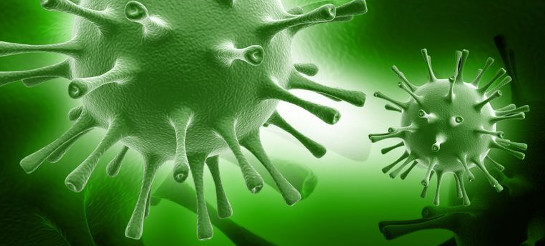Genital herpes is a sexually transmitted infection (STI) caused by the herpes simplex viruses type 1 (HSV-1) or type 2 (HSV-2).
Transmission of Infection
Herpes infections are spread through contact with lesions in mucosal surfaces or both oral and genital secretions. In fact, HSV-1 and HSV-2 can also be present in seemingly healthy skin. Indeed, a person can only get an HSV-2 infection by having sexual intercourse with someone who is infected with the virus. In other words, transmission most commonly involves a partner who does not have a visible sore and probably does not even know that is infected.
Symptoms
Most individuals infected with HSV-1 or HSV-2 are asymptomatic, or have very mild symptoms that go unnoticed or are mistaken for another skin condition. As a result, 81.1% of infected individuals remain unaware of their infection. When symptoms do occur, they typically appear as one or more vesicles on or around the genitals, rectum or mouth. The average incubation period after exposure is 4 days (range from 2 to 12). The vesicles break and leave painful ulcers that may take between two to four weeks to heal. Experiencing these symptoms is referred to as having an “outbreak” or episode.
Clinical manifestations of genital herpes differ between the first and recurrent outbreaks of HSV. The first outbreak of herpes is often associated with a longer duration of herpetic lesions, increased viral shedding (making HSV transmission more likely) and systemic symptoms including fever, body aches, swollen lymph nodes, and headache. Recurrent outbreaks of genital herpes are particularly common during the first year of infection. Approximately half of patients who recognize recurrences have prodromal symptoms such as mild tingling or shooting pains in the legs, hips and buttocks occurring from hours to days before eruption of herpetic lesions. Symptoms of recurrent outbreaks are typically shorter in duration and less severe than the first outbreak of genital herpes. Although the infection can stay in the body indefinitely, the number of outbreaks tends to decrease over time. Recurrences are much less frequent for genital HSV-1 infection than for genital HSV-2 infection.
Complications
Genital herpes causes painful genital ulcers in many adults that can be severe and persistent in persons with suppressed immune systems, such as HIV-infected persons. Both HSV-1 and HSV-2 can also cause rare but serious complications such as blindness, encephalitis (inflammation of the brain), and aseptic meningitis (inflammation of the linings of the brain). Development of extra genital lesions in the buttocks, groin, thigh, finger, and eye may occur during the course of infection.
Some persons who contract genital herpes have concerns about how it will impact their overall health, sex life, and relationships. Embarrassment, shame, and social stigma associated with a herpes diagnosis can interfere with patient’s relationships.
Genital herpes and HIV
Genital ulcerative disease caused by herpes make it easier to transmit and acquire HIV through sexual intercourse. There is an estimated 2- to 4-fold increased risk of acquiring HIV when the person is exposed to that infection while genital herpes is present. This is because genital herpes can cause ulcers or breaks in the skin or mucous membranes (lining of the mouth, vagina, and rectum) which provide protection against infections, including HIV. Herpetic genital ulcers can bleed easily and when they come into contact with the mouth, vagina, or rectum during sex they increase the risk of HIV transmission.
Treatment
There is no cure for herpes. However antiviral medications can prevent or shorten outbreaks during the period of time the person takes the medication. In addition, daily suppressive therapy (i.e. daily use of antiviral medication) for herpes can reduce the likelihood of transmission to partners.
Prevention
Correct and consistent use of condoms can reduce the risk of getting genital herpes. However, outbreaks can occur in areas that are not covered by a condom.
The surest way to avoid transmission of sexually transmitted infections, including genital herpes, is to abstain from sexual contact or to be in a long-term mutually monogamous relationship with a partner who has been tested and is known to be uninfected.
Persons with herpes should abstain from sexual activity with partners when sores or other symptoms of herpes are present. It is important to know that even if a person does not have any symptoms, he or she can still infect sex partners. Sex partners of infected persons should be advised that they may become infected and they should use condoms to reduce the risk.
Vardan Hambardzumyan




